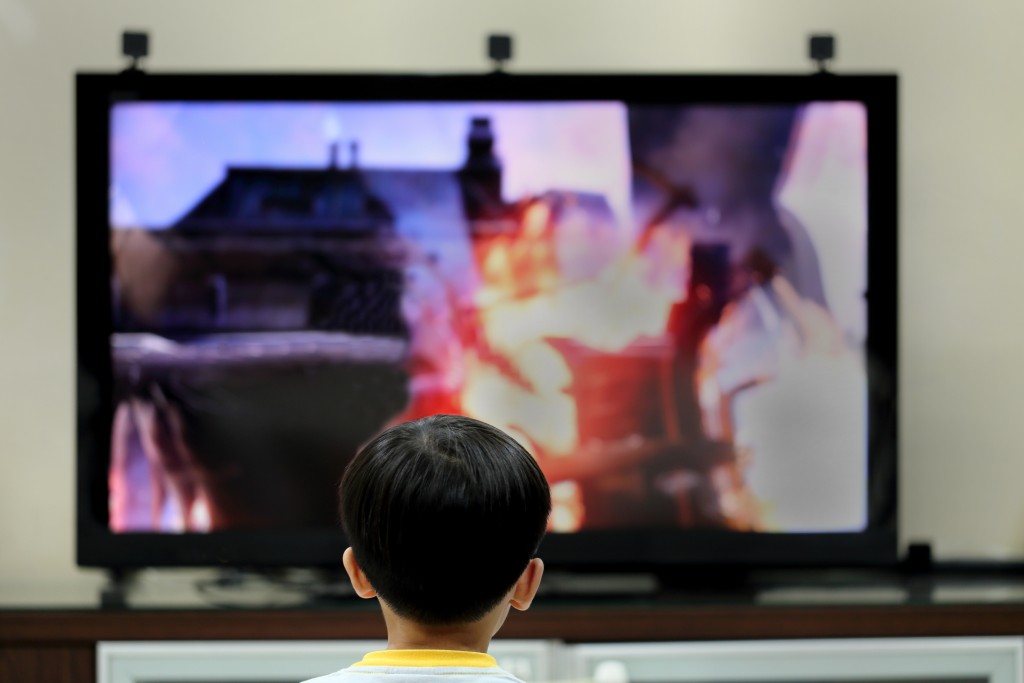Five tips to help children cope with a national tragedy
Staff reports
October 2, 2017
Whenever there’s a national tragedy, whether it’s a hurricane or an act of terrorism, it’s important to remember that kids may be experiencing increased levels of stress or anxiety.
Even if they’re not personally affected, exposure to traumatic events through the media or in conversations can affect a child’s emotional well-being. In the aftermath of Sunday’s horrific mass shooting at an outdoor country music festival in Las Vegas, we’re sharing this list of things to keep in mind when helping children cope with tragedy, provided by Jim Perez, OCDE’s administrator for Safe Schools and Support Services.

Be understanding. Not everyone responds the same way in times of crisis. Review common stress reactions as well as grief responses and try your best to empathize with those who are being impacted. It’s common for children experiencing trauma to become more quiet or withdrawn, but others may become irritable or act out. It’s important to remember that these are all normal reactions, and adults need to respond in a calm and caring way.
Education is key. Certain reactions can make us feel out of control. Discussing stress reactions and grief responses with kids can be very helpful during times of crisis. By identifying reactions and letting them know that these are normal responses to an abnormal situation, you will already be providing a level of comfort. Don’t be afraid to talk openly with students about their feelings and concerns about the incident and the aftermath. Providing accurate information to help clarify misunderstandings and reduce fear while avoiding scary details will help students gain control. We can also help teach our sour children how to use their own coping skills, such as talking to a trusted adult or doing activities like playing with friends, reading, praying, singing, dancing or creating art.
Promote self-care. In time of crisis, many of us become the caretakers of those who are most affected. These selfless acts of kindness are greatly appreciated, but adults must also remember to take care of themselves. Promoting self-care will ensure you do not burn out or experience higher levels of compassion fatigue, allowing you to care for others for a longer period of time with greater efficiency.
Have patience. Just as individuals may have varying responses in times of tragedy, they will also have different timeframes for healing. Try your best to be patient with those for whom you are caring, as they may have a shorter or longer response time to the crisis.
Make sure to follow-up. Check in periodically to make sure children are continuing to cope normally and do not need additional support. If additional support is needed, reach out to a school counselor or clinician. The majority of schools have school counselors on site that can meet with students to check in, help them process what they are experiencing and teach them about healthy coping strategies. If you would prefer seeking services outside of school, most medical insurances will cover these types of services.
Meanwhile, the National Association of School Psychologists offers these suggestions for keeping explanations developmentally appropriate:
- Early elementary school students need brief, simple information that is balanced with reassurances that their school and homes are safe and that adults are there to protect them. Give simple examples of school safety that remind children about exterior doors being locked, child monitoring efforts on the playground, and emergency drills being practiced so they are prepared if somethings happens.
- Upper elementary and early middle school students will be more vocal in asking questions about whether they truly are safe and what is being done at their school. They may need assistance separating reality from fantasy. Discuss efforts of school and community leaders to provide safe schools and provide concrete examples.
- Upper middle school and high school students will have strong and varying opinions about the causes of violence in schools and society. They will share concrete suggestions about how to make school safer and how to prevent tragedies in society. Emphasize the role that students have in maintaining safe schools by following school safety guidelines — for example, not providing building access to strangers, reporting strangers on campus, and reporting threats made by students or community members — communicating any personal safety concerns to school administrators, and accessing support for emotional needs.
Finally, we’ll close with this bit of advice, courtesy of beloved children’s television host Fred Rogers.
“When I was a boy and I would see scary things in the news, my mother would say to me, ‘Look for the helpers. You will always find people who are helping,'” Rogers said. “To this day, especially in times of disaster, I remember my mother’s words, and I am always comforted by realizing that there are still so many helpers — so many caring people in this world.”
